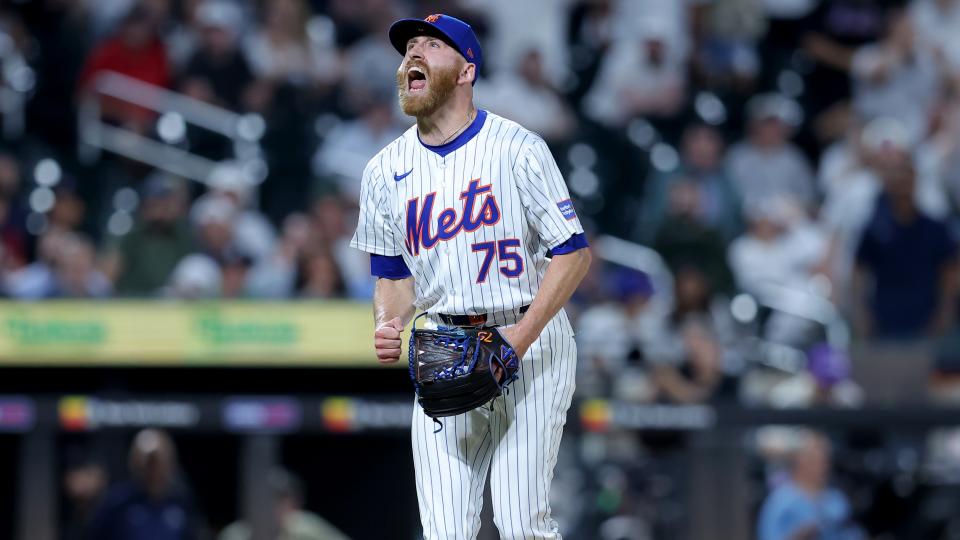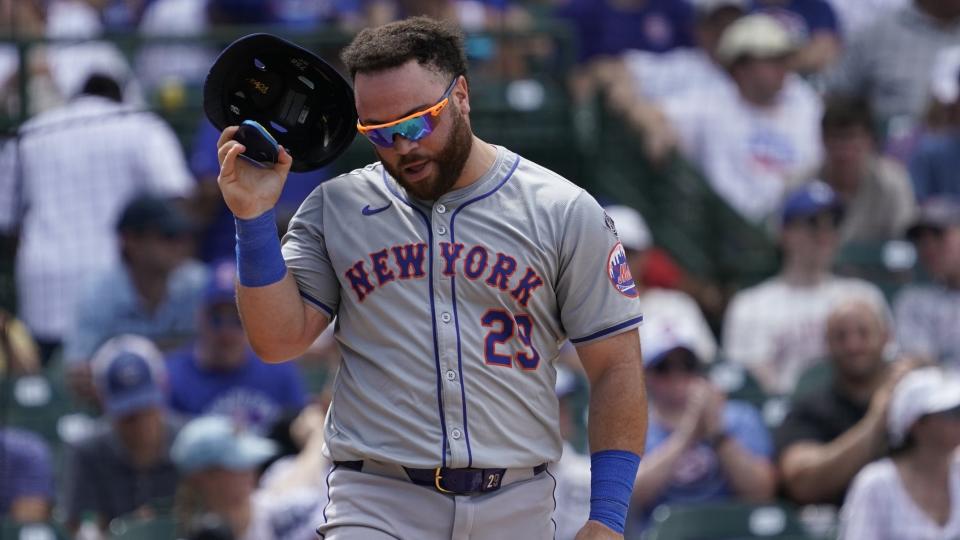Sports
Here’s what Mets’ 2024 MLB trade deadline strategy should be

At the All-Star break, the Mets — remarkably — are holding the third Wild Card spot in the National League.
To be specific, their 49-46 record and place in the standings is remarkable because of the winding road they took to get there.
At 22-33, most people were writing the Mets’ season off. Every day, an inevitable trade deadline fire sale was being discussed.
Even as the Mets started to turn it around, the claims of many that they were destined to sell at the deadline — a sale that would include Pete Alonso — did not go away.
But now?
On the strength of a 27-13 run, the Mets are currently in the third Wild Card spot, one game up on the Diamondbacks and Padres for that spot, and a half game behind the Cardinals for the second Wild Card spot (though the Mets are tied with them in the loss column). New York trails the Braves by four games for the top Wild Card spot.
When the Mets return from the break on July 19, they’ll open a four-game series against the Marlins in Miami as part of an 11-game stretch that will take them to the July 30 trade deadline.
If the Mets have a solid record during that stretch, they will almost certainly be buyers at the deadline, with the exception of perhaps trading one pitcher on an expiring contract if they deem their depth to be good enough to withstand it.
And if the Mets are indeed buyers, here’s how they should proceed…
Address the bullpen in a serious way
With Edwin Diaz, Dedniel Nunez, newly-converted reliever Jose Butto, and Phil Maton, the Mets have the makings of a solid bullpen. But the above pitchers make up just one half of the eight-man relief corps that is otherwise full of question marks.

Reed Garrett is out with an elbow injury that could be minor, but he’s regressed since his otherworldly start. Meanwhile, Brooks Raley and Drew Smith have been lost for the season due to injuries of their own.
Adrian Houser has started to wilt following some initial success after being moved from the rotation to the bullpen. And aside from that, carrying two long relievers (Butto and Houser) is not ideal.
Then there’s Jake Diekman (whose walk rate is an almost impossible to believe at 7.2 per nine) and Adam Ottavino (who has been relegated to mostly mop-up duty lately).
And the pitchers the Mets have called up from Triple-A Syracuse to help — including Eric Orze, Danny Young, Tyler Jay, Ty Adcock, and Josh Walker — have been inconsistent.
Sean Reid-Foley returning from the IL (potentially shortly after the break) should help, but if the Mets want to put themselves in the best position to make the playoffs, they’re going to have to add one, if now two, bullpen arms from outside the organization.
With there being three Wild Card spots in each league, the demand will likely outweigh the supply when it comes to relievers, which means adding legitimate help won’t be easy.
As they try to do it, the Mets should look to the teams that are already far out of the race (including the White Sox, A’s, and Marlins) and others that are teetering on the brink but have started to sell (like the Nationals, who recently traded Hunter Harvey).
It’s possible the A’s will make flame-throwing Mason Miller available, but the cost there will be enormous.
Feasible targets could include White Sox reliever John Brebbia, Jacob Barnes of the Nats, and Marlins closer Tanner Scott. All three are set to be free agents after this season.
Try to trade for a corner outfielder
With Starling Marte out and progressing slowly as he works his way back from a knee injury, the Mets’ outfield situation is unsettled.
Since Marte went down, the Mets have been giving most of that playing time to DJ Stewart and Tyrone Taylor, with Jeff McNeil also getting a taste.


The problem is that Stewart has a .635 OPS, Taylor has a .664 OPS, and McNeil has a .591 OPS.
Taylor at least provides plus defense and speed, and has been hitting better lately, but New York should be looking for reinforcements — especially since it’s hard to rely on Marte returning and staying healthy.
If they want to take a big swing, the Mets can call the White Sox about Luis Robert Jr., who is signed through 2025 and has club options for 2026 and 2027. Or they can ask the Marlins about Jazz Chisholm Jr., who will almost certainly get dealt but will be very expensive to acquire — Chisholm is arbitration-eligible through 2026 and is incredibly inexpensive (he’s making just $2.625 million this season).
More realistic options could be two guys on expiring contacts — Robert’s teammate (and former Met) Tommy Pham, and Jesse Winker of the Nats, who is having a terrific season.
There exists a scenario where Drew Gilbert, who just returned from a hamstring injury, hits his way through Triple-A and is an option at some point in August or September, but the Mets can’t bank on that happening.
Do not trade any blue chip prospects
With the Mets’ farm system now full of top 100 prospects in the sport and rapidly ascending, it means there are a whole lot of guys who should be off-limits in any trade discussions at the deadline.
Could the Mets make it to the World Series if they reach the playoffs? Yes, evidenced by some out-of-nowhere runs recently, including just last year by the Diamondbacks.
But now is not the time for the Mets to be dealing any of their very best prospects.
That means the following players should be off the table in any deal:
Jett Williams
Christian Scott
Drew Gilbert
Ryan Clifford
Ronny Mauricio
Luisangel Acuña
Brandon Sproat
Blade Tidwell
Nolan McLean
Jonah Tong
If the Mets hold on to the above players, it means they almost certainly won’t be making a big splash at the deadline. But they don’t need to make a splash. They simply need to bolster the bullpen and get corner outfield help, which can be done without seriously mortgaging the future.






